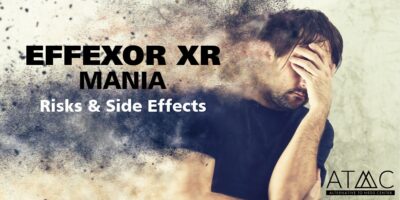Most people have heard the term “delusional” tossed around as an insult in contexts such as business or politics. You may have even been told that your childhood dream of becoming a fairy princess or the president of an entire country was delusional. While these instances are representative of events that are unlikely to occur, they are better described as dreams, the product of an imagination, or even fantasies.
True delusions are much more serious and require the involvement of health experts and thoughtful interventions. Learn about delusions as a symptom of substance use disorder, how they differ from dreams, and why they are a concern.

Imagination and Dreams Versus Delusions
When Joseph was a child of six, he often sailed on Viking ships, piloted jet aircraft, and talked with kings and queens. We would be concerned if, by the age of 12, he was still manifesting these beliefs to the exclusion of any other thoughts or activities. Now that Joseph is 72 and a retired salesman, he spends his time building model Viking ships and planes, which he gifts to his grandchildren.
Joseph enjoys building the ships and aircraft he used to dream of and loves playing imaginatively with his grandkids. He also manages his retirement investments, invests time in the people he cares about, and enjoys holidaying in the Bahamas with his wife of 50 years. Joseph still has his boyhood fantasies and dreams, but he is not experiencing delusional symptoms, nor do his dreams hinder him from engaging in life in healthy ways.
Let’s explore how delusions are different from Joseph’s dreams.
What Are Delusions?
Delusions are just one of many potential symptoms that may result from drug-induced or substance-induced psychosis. Per the National Alliance for Mental Health and the American Psychiatric Association, psychosis can be defined as: “a disruption or impairment in an individual’s ability to differentiate between their perceptions and reality.” In other words, psychosis leads to a mental break from reality. 1
More specifically, delusions are beliefs about the world that may be possible but are not, in fact, true. For example, while the government could follow you or listen in on your phone calls, believing the government is doing these things when there is no evidence to support that fear may be indicative of a delusion. Delusions can be just one symptom of drug-induced psychosis, but if delusions are the only symptom, it can be called a delusional disorder.
Delusions can come in all forms and are commonly treated with unnecessary prescription drugs.
Delusions are potential symptoms of prescription drug-induced psychosis, substance-induced psychosis, and drug-induced psychosis. Even commonly used recreational drugs, such as marijuana, can result in delusions. 2 The unfortunate reality is that when you are using drugs or pharmaceutical medications to handle one issue, such as depression, anxiety, or even Parkinson’s disease, you can end up dealing with unanticipated effects such as delusional infestation or other iterations of delusions. 3
Such an issue can be seen in Joseph’s son, Mark.
Mark experimented with drugs and alcohol at the age of 19, trying to use substances to cope with high levels of stress due to his upcoming college exams. Mark gradually became more and more delusional, becoming convinced that the CIA was tailing him and even had microphones hidden under the carpets. As symptoms of cannabis-induced psychosis worsened, Mark began refusing to sleep for fear of being “taken in the night.”
Mark’s health rapidly deteriorated, eventually leading to a breakdown, which landed him in the hospital. During the course of his treatment, Mark was given powerful drugs that numbed his mind and finally allowed him to sleep. But, he did not do much else than sleep during this time and did not return to former levels of health and wellbeing.
It is an unfortunate reality that many people who experience delusions due to substance or medication use are pumped full of still more chemicals. This does little to investigate or address the cause of the delusions and instead can actually contribute to them.
By correcting what is going on under the surface, relief can occur without taking mind-numbing drugs.
After three months of hospitalization, Joseph, desperate to help his son, found a physician who was also a naturopath, who advised some testing to see if there were any particular physical areas that needed correcting. This physician suggested examining Mark’s blood sugar levels, toxicity, glandular or hormone anomalies, and vitamin and mineral deficiencies. When the testing was done, specific, addressable problems were found in all of the above areas.
With proper rest, proper nutritional correction, and corrective delusion treatment, Mark was able to wean off the medications and gradually regain his strength and mental clarity. With the changes made to his diet and following recommended treatments, Mark’s symptoms of delusions abated completely. Mark has since graduated college and has a family of his own. He steadfastly keeps his diet and sleep patterns, safeguarding his health, and has not relapsed in over 12 years.












